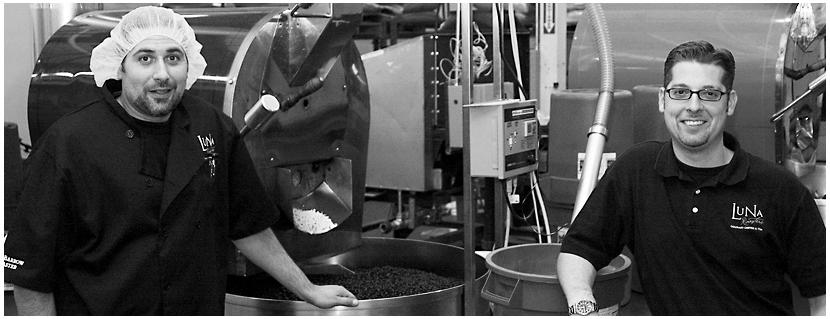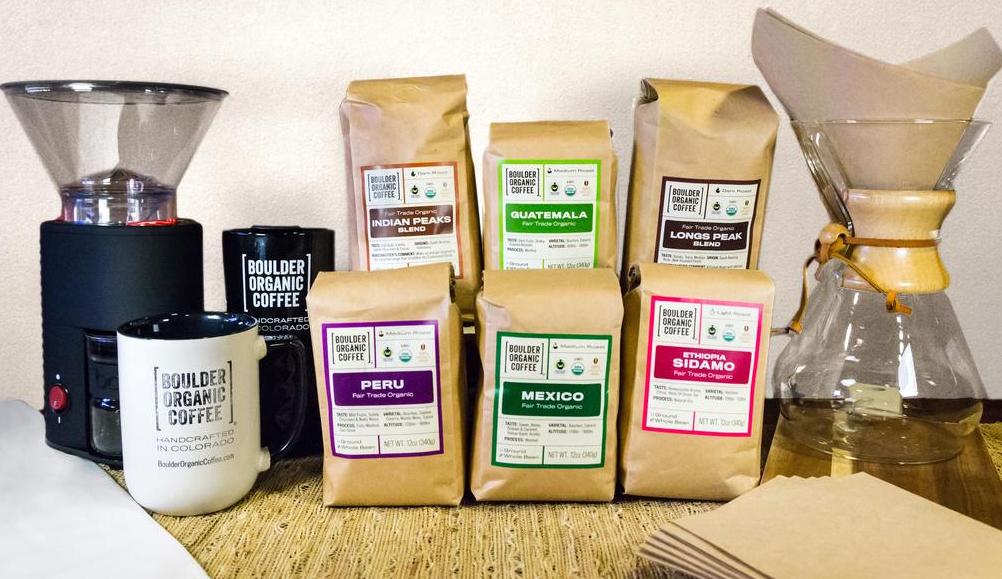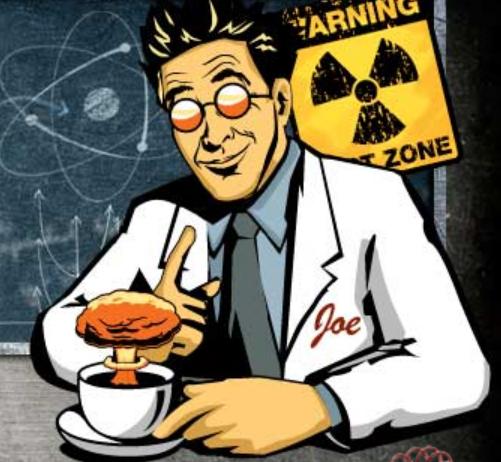It’s the mother of all business problems...
And it's extremely difficult to fix.
However, there are ways to grow a customer base that has been stagnating for years.
“Our loyal, core-customer base is the result of a decade-plus of relationship building, but those relationships are becoming less of the slice of the pie than ever before,” says Josh Bultz ecommerce Chief at Luna Gourmet Coffee & Tea Company.
It may not be pleasant to think about or something most are willing to say out loud but the facts are clear; the number of U.S. citizens age 65 and older is expected to reach 98 million by 2060 or more than twice the number of older Americans living today.
“It puts a tough business challenge in front of us in that we have to adapt and start building a new following with another segment of the population,” says Bultz “As the older generation holds less overall buying power in the market and the rise of younger gens come into more of a prominent purchasing role.”
These were customers who had been with the Luna family of brands for ten and fifteen years. With the proverbial satisfied yet stagnant customer base where it was and no ground-breaking tactics to market to them, the situation Bultz found himself in looked even bleaker when you consider:
- The average Luna customer is between the ages of 45-65
- Approximately 75% of the company’s sales are brick & mortar and B2B
Bold action was necessary for a company that sells bold coffee.
If Luna was to outlive its customers, it would have to develop a new customer base that was coming into buying power, predominantly and a means to connect with, and sell to that base directly.
It also meant Bultz would have to ask his boss, a guy who is also one of his best friends, to write a big check with no guarantee of return.
You Want $20,000 for What?
Selling coffee to bagel shops, cafes, and groceries has been Luna’s bread and butter since brothers Doug & Jason Barrow founded the company, which now boasts of four brands, sixteen years ago.

The Colorado company, which touts its high-altitude roasting, emphasizes its commitments to sustainability and high-quality bean selection. “We want to position ourselves at the top of the coffee pyramid,” Bultz says.
But doing so would require Luna to change how it has historically done business. That would become Bultz’s job after joining the team in 2014. “We wanted to build a business that would stand the test of time,” he says. “A robust business that was going to be relevant in the future.”
That meant targeting millennials and selling directly to them online.
It was November 2015 when Bultz took Boulder Organic Coffee, the Luna brand that most embodies the values many millennials hold dear, and launched it online to sell direct and make it into a national brand. This was fair trade, organic, premium coffee that offered an experience; key attributes Luna had identified that millennials value over discounts and merchandise.

But four months later the brand had failed to gain much traction.
“It started really slow and we had no ad budget for this brand,” Bultz says. “We had just a few hundred email subscribers and almost no social following.”
Boulder Organic had done just $4,000 in online sales.
But Bultz burst into the boss’ office and asked for $20,000 to spend on marketing. “Oh, yea there was a lot of nervousness and a lot of angst,” Bultz admits. “Think about it, not only did I want this to be successful but this was also one of my best friends.”
The boss was also a guy known to say no often.
“He was like you want me to spend on marketing five times what we’ve generated so far in sales,” Bultz recalls the boss asking.
A quick “no” is what Bultz got right out of the gate.
But after some convincing, Bultz and his boss built a financial model and investigated exactly how a successful marketing campaign might impact operations from their roasting to fulfillment. In the end, the two shook hands and decided to take a strategic leap of faith.
Bultz got the $20,000 check he wanted.
Plus a marketing surprise no one saw coming.
A 50% Conversion Rate (NOTE: This is NOT a Typo!)
It certainly would not be a “PPC & Pray” type of campaign.
Remember, Bultz had done his homework and knew exactly where and how he wanted to target millennials. After partnering with the online publisher Apartment Therapy, which Bultz says gets one million unique visitors a day and has an email list of 475,000 millennials interested in receiving giveaways and great deals, Boulder Organic Coffee sponsored a post on the site and held a sweepstakes it hoped would attract people to the brand.

“I was really nervous the first few hours,” Bultz admits.
The sponsored post, which remained on the site’s homepage for a week, introduced the Boulder Organic Coffee brand to millennials, emphasized the benefits important to them, and offered a sweepstakes contest consumers could enter to win free coffee. “The publisher’s audience loves coffee, so we were hopeful, but still unsure,” Bultz says.

In the car on his way to the office, Bultz got an urgent call.
It was a co-worker providing an update moments after the sponsored post dropped. “We had gotten four hundred registrations almost immediately,” Bultz recalls with a lingering hint of excitement in his voice.
The registrations grew throughout the day and by the end of the week, Bultz and the team at Luna had grossly exceeded their wildest expectations:
- 50,000 unique site visitors
- 25,000 visitors who opted into the sweepstakes with their email
- A conversion rate of 50%
- An 80-cent per email acquisition cost
“It was such an awesome moment,” Bultz says. “Finally, we had a growing, not a dormant customer base.”
Speed to Market
Think you could launch a new online brand in just two weeks?
That’s exactly what Bultz and the Luna team accomplished with Boulder Organic Coffee, and they credit Shopify, an enterprise-level ecommerce solution for high volume merchants, with helping them do it so rapidly.
“Shopify got us to market quickly and easily,” Bultz says. “I don’t even have a full-time programmer and I don’t need one because Shopify is so easy to use.”
To be fair, Bultz and the Luna team were able to launch so quickly, in part, because this isn’t their first go-round with Shopify. In fact, the team is preparing to launch its third Shopify-powered store, Boca Java Atomic, an uber-caffeinated brew also aimed at millennials.

“Shopify allows us to use business and marketing people to build ecommerce sites rather than programmers,” Bultz says. “As great as Shopify is, we could be on the platform for years.”
Besides ease of use and speed to market, Luna has repeatedly chosen Shopify over other platforms because of the applications that easily integrate with its sites. Several that are helping Luna grow its brands and sales include:
- Receiptful which automates a series of abandoned cart emails that recoup lost revenue and increase ROI
- ReCharge which offers subscription software designed to boost sales by turning buyers into recurring customers
- Privy which offers pop-up software designed to help businesses grow their email lists, incentivize conversions, and grow revenue
“We didn’t even ask but Privy upgraded us for free,” Bultz says. “The people behind these apps will jump on the phone with you immediately if you’re having a problem. They’re even willing to custom code something to fit your needs.”
It’s a combination of flexibility, functionality, and speed that has resulted in year over year growth of 50% at Boyer’s Coffee, another of Luna’s brands, since replatforming with Shopify. Bultz and his team expect the brand to grow between 50-75% this year thanks, in part, to Shopify.
It’s certainly not as if Luna forgets about its aging but loyal customers. Today, though, Luna is fine-tuning its marketing, ensuring it’s authentic and data driven, to convert millennials who are just now being introduced to its coffee into lifelong advocates who see a bit of themselves reflected in Luna’s brands.
“We’re so excited,” Bultz says of the opportunity with millennials. “I know we have a long runway of people who are becoming established in the world with the power to spend and control the market.”
Read more
- Costs Slashed, 2X Holiday Revenue, Three Weeks After johnnie-O Replatformed
- The Multi-Channel Menace: Young & Reckless, YouTube, & Mastering Customer Engagement
- How RIPT Apparel Turned $3,000 Into $4 Million Selling One T-Shirt At a Time
- How a Broke Fitness Trainer Accidentally Created a Multimillion-Dollar Business Without Advertising
- A “Golden” Opportunity: How Activewear Brand Rhone Disrupted Itself Two Years After Launching
- Why Seth Godin Wrote a Book for People Who Don't Usually Read Books
- How Frankies Bikinis Uses Launchpad to Automate Product Releases That Generate $150,000 an Hour
- How World Wildlife Fund Canada Uses Shopify Plus to Protect the Polar Bears
- Why Marshawn Lynch Chose Shopify Plus to Power His Flagship Store Two Days Before Retiring from the NFL


